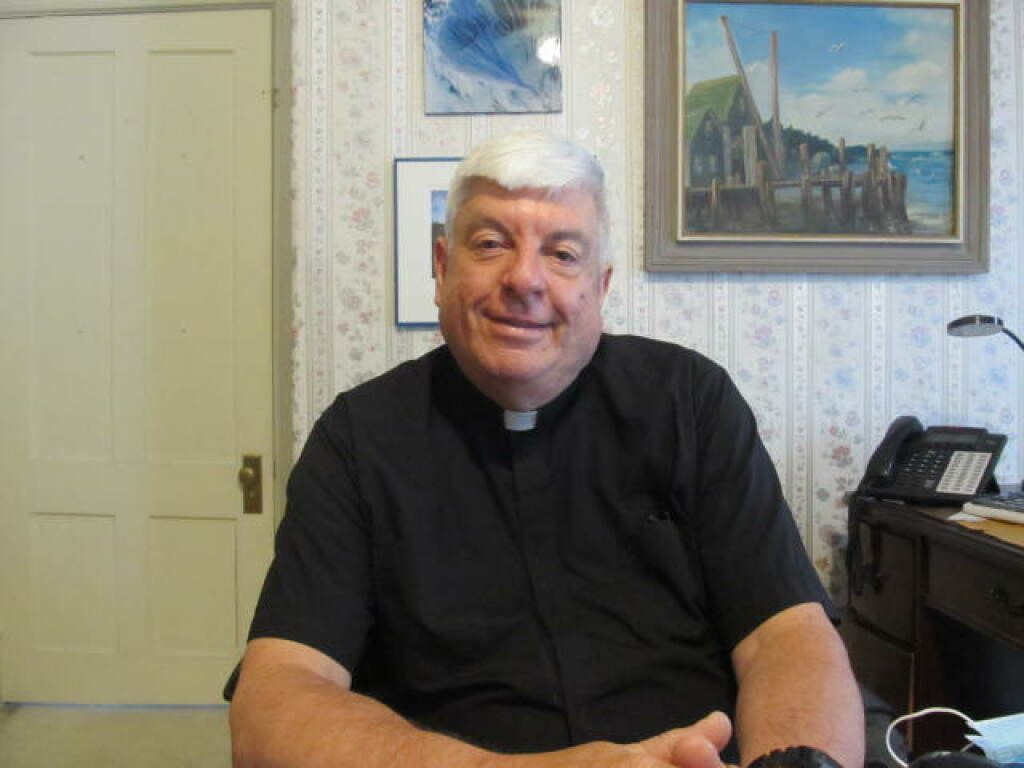 I will not leave you orphans
I will not leave you orphans
Every time I read a passage of Scripture, I find new insights. Parts of the text will jump out and demand my attention. In today’s Gospel, I was struck by Jesus’ promise, “I will not leave you orphans; I will come to you.”
Some time ago the advice columnist Ann Landers was asked by a reporter, “What is the question that you are asked most frequently by your readers?” She answered that it was a very simple question: “What’s the matter with me? Why am I so lonely?”
What Ann Landers was suggesting is that, while not everyone is an orphan, strictly speaking, many feel as if they are orphans.
The problem of loneliness in our society is serious enough that it led Dr. Vivek H. Murthy, Surgeon General of the United States, to issue a health advisory on loneliness. He wrote the following: When I first took office as Surgeon General in 2014, I didn’t view loneliness as a public health concern. But that was before I embarked on a cross-country listening tour, where I heard stories from my fellow Americans that surprised me. People began to tell me they felt isolated, invisible, and insignificant. Even when they couldn’t put their finger on the word “lonely,” time and time again, people of all ages and socioeconomic backgrounds, from every corner of the country, would tell me, “I have to shoulder all of life’s burdens by myself,” or “if I disappear tomorrow, no one will even notice.” It was a lightbulb moment for me: social disconnection was far more common than I had realized.
He continues, In the scientific literature, I found confirmation of what I was hearing. In recent years, about one-in-two adults in America reported experiencing loneliness. Loneliness is far more than just a bad feeling—it harms both individual and societal health. It is associated with a greater risk of cardiovascular disease, dementia, stroke, depression, anxiety, and premature death.
The Surgeon General’s conclusion? Given the profound consequences of loneliness and isolation, we have an opportunity, and an obligation, to make the same investments in addressing social connection that we have made in addressing tobacco use, obesity, and the addiction crisis.
We need to address social connection . As we celebrate Mother’s Day, I found an interesting article about motherhood in a recent edition of Our Sunday Visitor. Mary Lenaburg reflects on her experience, pointing out what helped her to overcome feelings of loneliness and isolation. She writes, It helps if you can find your people. We are not meant to be alone. We grow and thrive in community. We need help. I was a young mom on a military base where nobody’s doors were locked, and we would go to the playground with our coffee and our exhaustion, and everybody would have a baby in a sling. Sometimes we never even spoke. But we were there. And we knew that if anybody needed anything, no matter what, we would be there for each other. I had community. I had my people. I still have my people. But because of social media, people have made their tribes online. And those people are not in your life in the same way. It’s lovely to have a community online. But what’s going to happen at 3 a.m. when you need help?
What does Mary suggest? One place you find your people is at church, because you’re like-minded. Everybody there has a heart for the Lord. When you see a young mama there, go introduce yourself to her. Even if you’re an introvert just sweat it out. Do it. It might change your life. Another thing to remember is it’s not always who you think it’s going to be. It could be a bunch of young people. It could be an older couple.
Going back to Ann Landers and the most frequently asked question (Why am I so lonely?), what does Ann Landers suggest? Her answer was quite simple: “Get involved! Do something good for other people! People who need our help are all around us.”
Jesus promises in today’s gospel, “I will not leave you orphans; I will come to you.” Obviously, that can happen in prayer, as we open ourselves to deepening our relationship with the Lord. But Jesus also wisely gave us to each other. From the very start, he gathered people, he watched especially for those on the peripheries of life, those being left out—and he brought them into relationship with him and with the community he was forming.
Sometimes, if we’ve had a traumatic experience—the loss of a loved one, a health scare, job problems, the breakup of a relationship—it’s easy to close in on yourself, to choose isolation. It’s easy to shut the door and not let anyone else in. So, if we’re going to rebuild the social fabric, as the Surgeon General, Ann Landers, and the mother I quoted all suggest, it has to lead to opening doors, and building bridges, and noticing who’s absent, and thinking about someone other than ourself, and bringing all of our disappointments and all our longing to the Lord in prayer. We are not meant to be orphaned! But a great deal of releasing ourselves from orphanhood means we have to get out of ourselves, off our smartphones, off the couch, and care about each other in a community of mutual concern, compassion and connection. That’s how we overcome the loneliness of orphanhood.
You might also like
Father's Homilies




